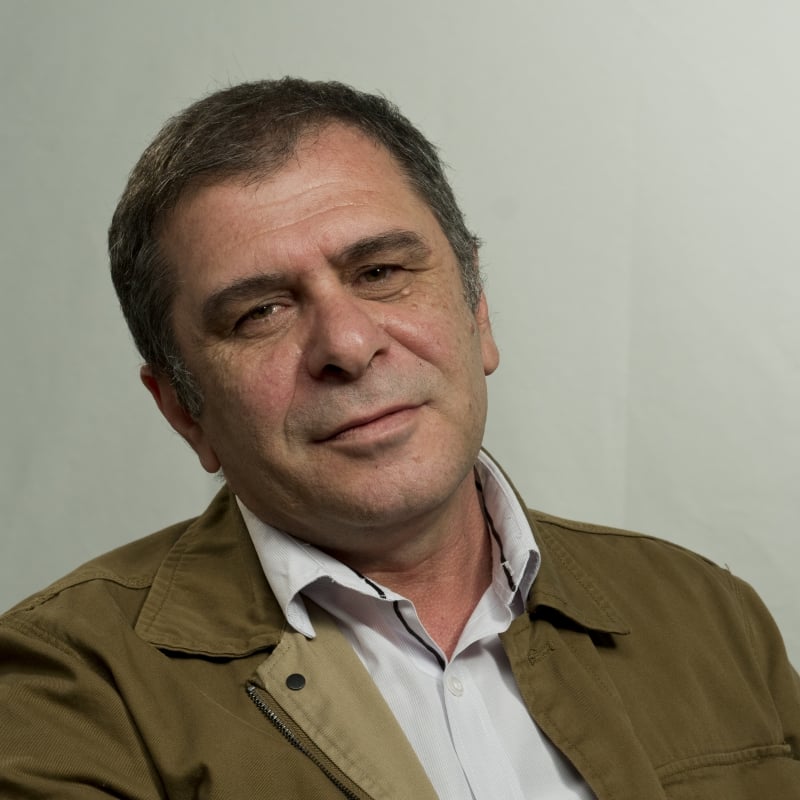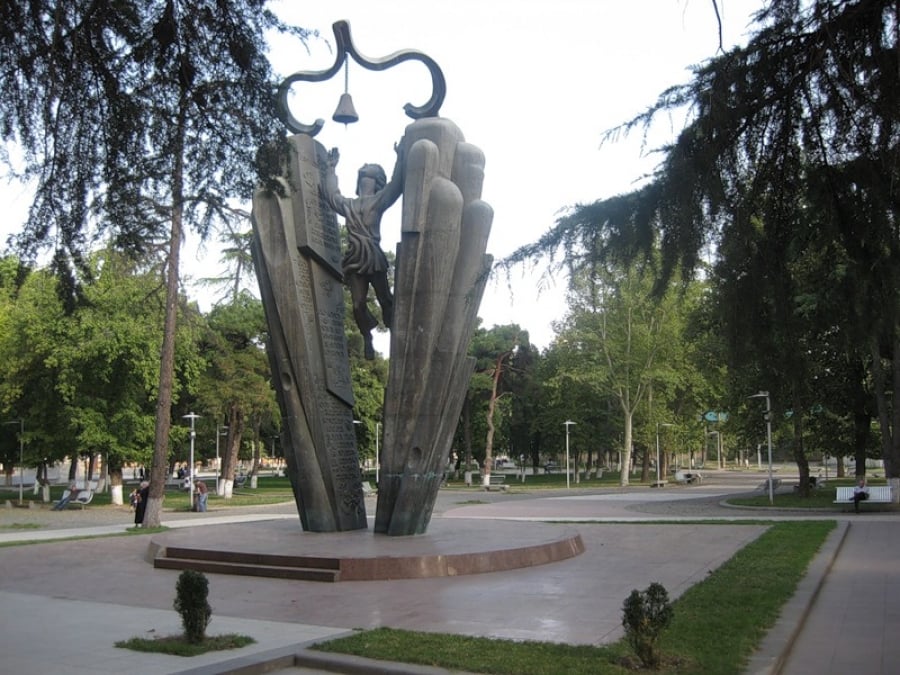The issue of Russian becoming Armenia’s second official language that became exacerbated in 2017 is not new. In Soviet countries, Russian was called a united language and essentially had the status of an official language in all the republics.
But this too sometimes didn’t satisfy Moscow’s ruling authorities. National languages interfered with shaping the perfect homosoveticus. And so, momentarily, particularly when a new Constitution was adopted by the country, or the need to make amendments to it arose, they would suddenly remember that different nations still spoke in their mother tongue.
When the same compulsion happened in 1978, Soviet peoples still remembered the bitter experience of the struggle for language during the Stalin years. In Armenia, Aghasi Khanjian, the leader who rebelled against that provision in Stalin’s Constitution; Hrachya Ajaryan, the top scientist; and numerous intellectuals paid with their lives, or with imprisonment and exile.
During those years, Armenia and Georgia took all the weight of the rebellion on themselves.
Upon Communist Party of the Soviet Union Politburo member Suslov’s suggestion, the provision that the official language of a republic was the language of the metropolitan nation of that republic was removed From the new 1978 Constitution. For example, in Armenia’s case, it didn’t say that the official language of the Armenian Soviet Socialist Republic was Armenian.
In Moscow, it was thought that national languages were an unnecessary extravagance in the era of advanced socialism.
All the facts exist to claim that the young leader of the republic, Karen Demirchyan, opposed this change. But he acted cautiously, but also stealthily directed the wave of discontent.
The first protest demonstration takes place in the Writers’ Union of Armenia.
The head of the Writers’ Union was Demirchyan’s childhood friend Vardges Petrosyan. The local Communist Party of the Writers’ Union, led by Mkrtich Sargsyan, in its meeting expressed its opposition to the bill and proposed to make changes in the section on language.
Immediately after the meeting, Demirchyan calls Mkrtich Sargsyan, informs him of the meeting decision and hints that numerous other organizations and businesses should hold such meetings.
Ultimately, Demirchyan presents to Moscow the meeting minutes of party organizations of the top 30 businesses in the republic that demanded to leave the Armenian language alone.
When Tbilisi heard of what happened in Armenia, residents organized a thousands-strong protest march on April 14, 1978. The marchers carried Demirchyan’s photo and signs with the words “Armenia is with us” on them. Georgian women acted like feminists in Europe acted half a century later.
They would go bare-chested at the front of the march and chant, “We distill the Georgian language in our children through breastmilk; no one can take that away from us.” April 14 became Georgian Language Day in Georgia.
Due to the struggle of Armenians and especially Georgians, the provision of the general law on language remained unchanged.
It’s interesting that Demirchyan later in conversation with Mkrtich Sargsyan said, “How many writers have sent their children to Russian school? If their own children are not going to read their books, let them not write them for others” (Irates No. 61, September 15–18, 2017).
After Armenia’s independence, Russia didn’t stop imposing on its self-governing ally to give the Russian language a higher status and ensure its dissemination.
No matter how much our republic is politically and economically dependent on Russia and our ruling authorities are voluntarily dependent on their Russian counterparts, in the legal and political sense they are much more free than Aghasi Khanjian or Karen Demirchyan was.
Furthermore, during the Soviet years, in Armenia there was a greater demand and bigger dose of sympathy for Russian than there is today.
The question of giving Russian official language status in Armenia erupted also in the early 2000s. The matter was discussed even in parliament. According to some information, then president Robert Kocharian had instructed several experts to present justifications on how Russian’s official language status threatens our national security and present the rationale to his Russian partner.
Today’s pressures began after Ambassador-at-large of the Ministry of Foreign Affairs of the Russian Federation Eleonora Mitrofanova stated that the question of awarding Russian second official language status in former USSR countries will be included in the agenda of Russia’s foreign policy.
In response, Armenian political analysts and linguists, even Russian-to-Armenian literary translators, announced that a smell of Russian chauvinism and “Empire adoration” emanated from this statement.
Then, Chair of the Russian State Duma Vyacheslav Volodin, who welcomed President of the Armenian National Assembly Ara Babloyan, said that Armenian citizens’ drivers licenses will be considered legal only if Russian gets official language status in Armenia.
A short time later, the Armenian Ministry of Education and Science, instructed by the prime minister, developed and presented to the parliament the conception about Russian, with which exclusive study privileges are given to this language, though it is declared a foreign language in Armenia.
Armenian Prime Minister Karen Karapetyan denies that the conception was developed upon his instructions. So it seems Moscow is already giving direct instructions to one Armenian ministry or another.
By the way, the Armenian education and science minister justifies the need for perfect command of Russian by its scientific usefulness; meanwhile, the chair of the State Duma, first of all, by labor migrants’ interests.
But the issue of course is not only Armenian taxi drivers working in Russia. In general, the Russians, particularly officials, are quite vexed that Armenian taxi drivers in Yerevan no longer speak Russian. They’re furious because in their mind Armenia is still not — and in some people’s opinions, no longer — an independent country.
Our society gives this impression profusely to the people and ruling authorities of the allied and friendly country.
Let us repeat the idea that to rebel and succeed was more difficult both in the 1930s and 1970s. It was hard particularly in the second case because in Armenia there was already a huge mass of Russian speakers and Russophiles; the Russian language was everywhere in our daily life; and it was regarded as proof of development despite backward Armenian-speakers and -thinkers. That mass of people doesn’t exist today.
But there also isn’t the mass of people saying “No” to encroachments on the Armenian language. In general, there is no public revolting against numerous other complaints.
Hovhannes Yeranyan







